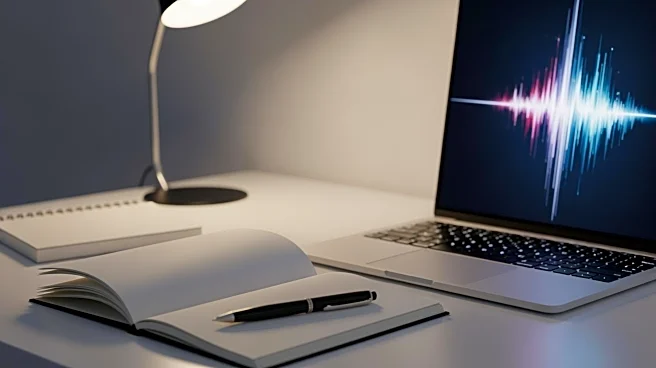What's Happening?
Researchers have found that daily self-hypnosis sessions can significantly reduce the frequency and intensity of hot flashes in menopausal women. A study published in JAMA Network Open reported that women who
engaged in daily audio hypnosis sessions experienced a reduction in hot flash frequency and intensity by more than 50%. The study involved 250 women who were experiencing at least four daily or 28 weekly hot flashes. Participants were divided into two groups: one listened to a 20-minute hypnosis audio file daily for six weeks, while the other group listened to a sham audio file consisting of white noise. Results showed a 53% reduction in hot flashes for the hypnosis group compared to a 41% decrease in the control group. By three months, the reduction was 61% for the hypnosis group. The study highlights self-hypnosis as a cost-effective and accessible alternative to hormone replacement therapy, which is not suitable for all women.
Why It's Important?
This development is significant as it offers a non-invasive, cost-effective alternative for managing hot flashes, a common symptom affecting over 25 million women in the U.S. during menopause. Hormone replacement therapy, while effective, is not a viable option for all women due to potential health risks. Self-hypnosis provides a safe alternative that can be practiced at home, reducing the need for frequent doctor visits. This method also holds potential for broader applications, such as managing anxiety, pain, and stress, thereby improving overall quality of life for women undergoing menopause. The study's findings could influence healthcare practices by encouraging the integration of mind-body techniques in treatment plans for menopausal symptoms.
What's Next?
Researchers plan to further explore the benefits of self-hypnosis, particularly its impact on improving sleep for menopausal women and breast cancer survivors. This could lead to broader acceptance and use of self-hypnosis in clinical settings, potentially expanding its application to other stress-related conditions. As more studies validate its efficacy, self-hypnosis could become a mainstream recommendation for managing menopause-related symptoms, offering a holistic approach to women's health.










